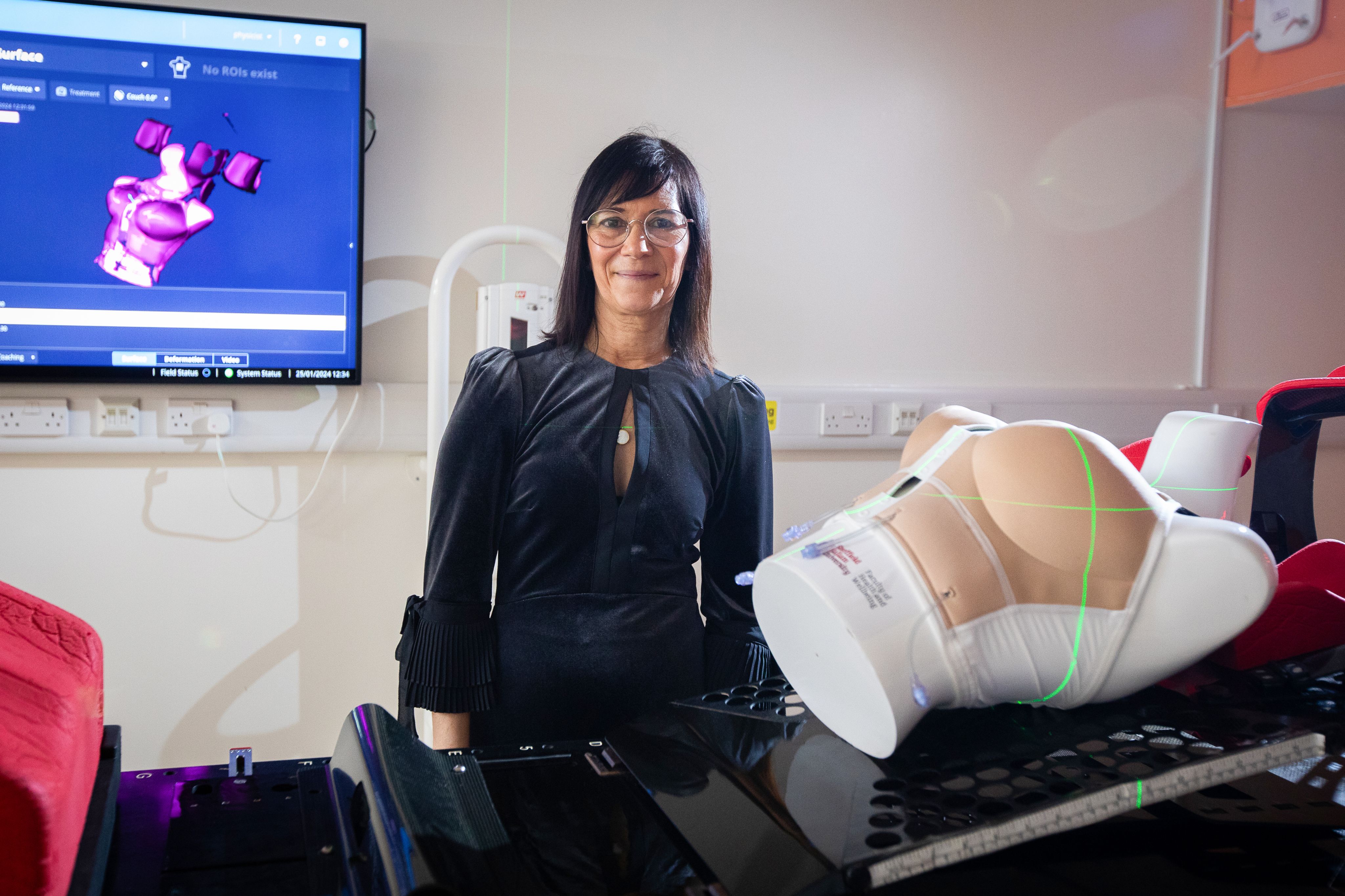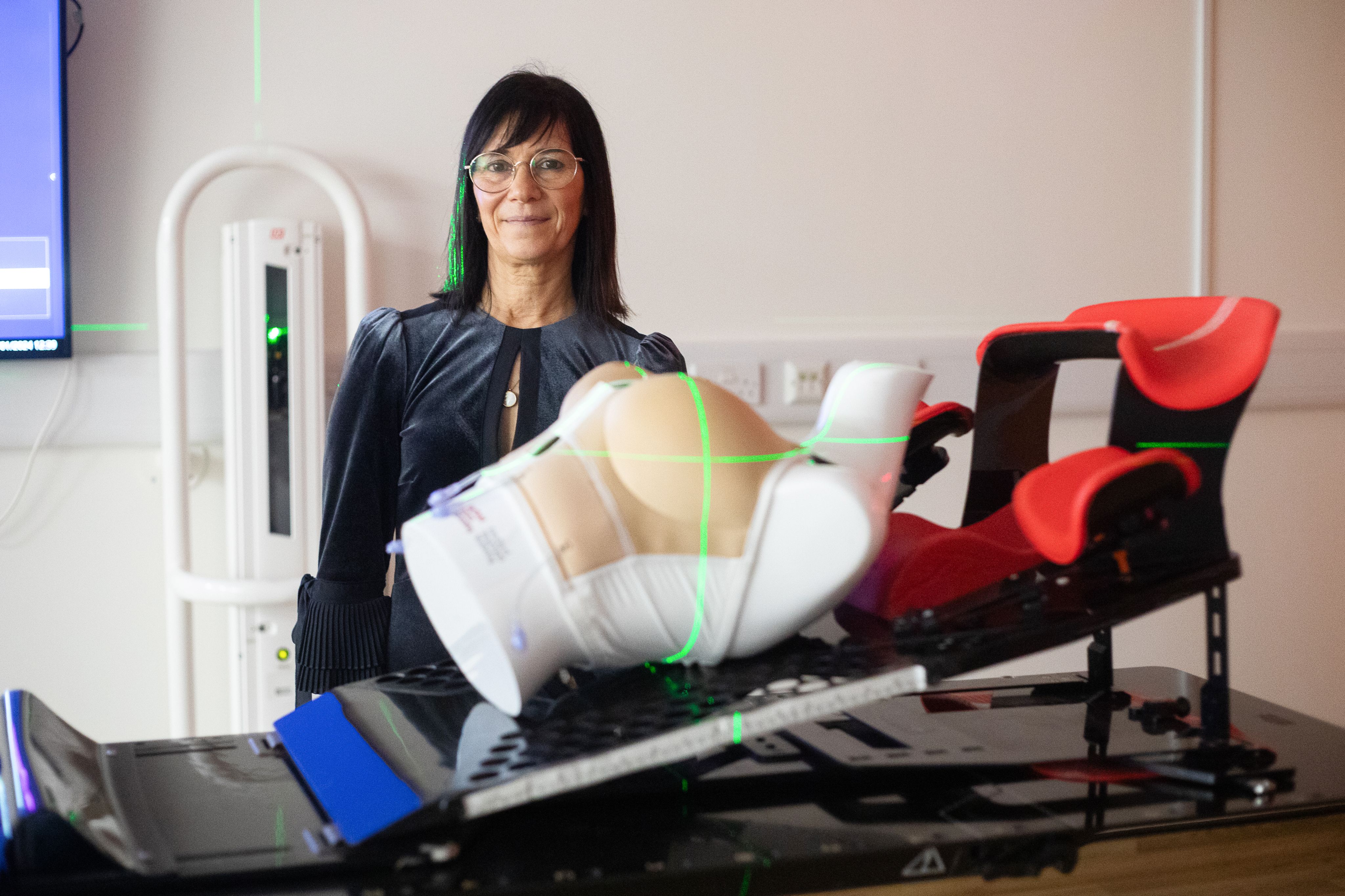Profile: Heidi Probst
The need for mentors
Synergy sat down with Sheffield Hallam professor Heidi Probst to discuss her MBE and her passion for research
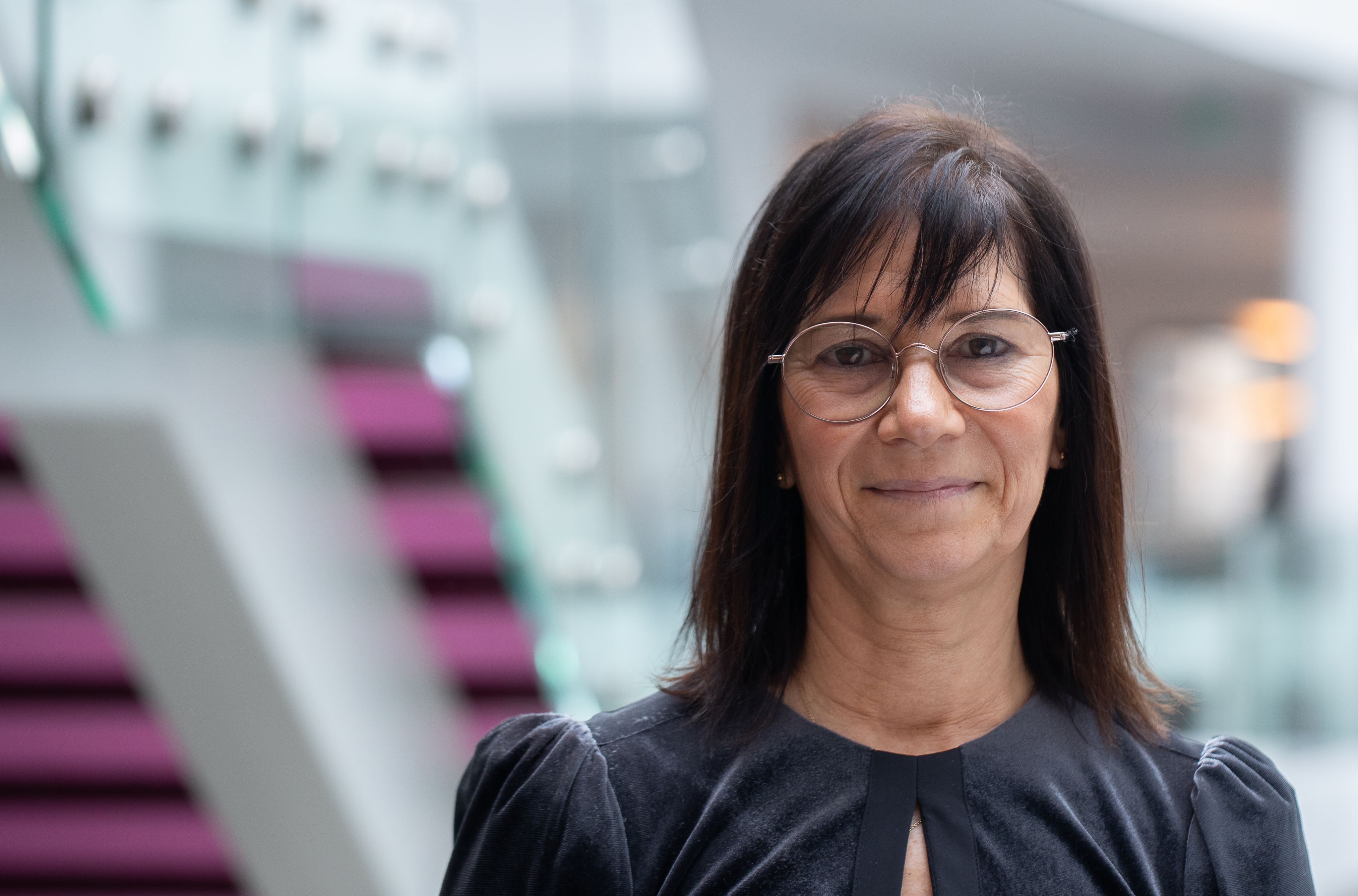

Profile: Heidi Probst
The need for mentors
Synergy sat down with Sheffield Hallam professor Heidi Probst to discuss her MBE and her passion for research
In December 2023, Professor Heidi Probst was named in the New Year Honours List - a prestigious accolade given to those who have made remarkable impacts in their fields.
For Heidi, professor of radiotherapy and oncology at Sheffield Hallam University, receiving a MBE, was not just a personal achievement, but a welcome recognition for the entire radiography profession.
Having started her career in therapeutic radiography in the late 1980s in London and then in Leeds, Heidi has since moved into education, and has been a leading voice in the promotion of radiography research.
Heidi sat down with Synergy to discuss her achievements over the course of her career, how she made the 2024 New Year Honours list, and what students can do to find their passion.
Falling into the profession
Heidi explained that, during her A-Levels, she had no idea what she wanted to do. While she had been interested in physiotherapy and diagnostic radiography, it wasn’t until therapeutic radiography had been suggested to her that she sought to learn more.
“I went to the Royal London Hospital in Whitechapel for an interview [for the Diploma of College of Radiographers], and had a look around the department. I was suddenly so taken by what the course was about, what I would eventually be doing if I qualified, I got hooked. That’s what I wanted to do.”
Heidi trained at the Royal London, qualifying in 1987 before moving to Leeds that year. She explained that she “couldn’t understand” why the two departments had worked so differently.
After two years of being an entry-grade radiographer, Heidi studied part time for a BSc – her first introduction to doing research. While there, she focused on practice methods and the impact of different radiotherapy protocols.
Following the achievement of her BSc, Heidi became interested in post-graduate education and went on to do a Masters degree in industrial relations at Keele University, graduating in 1994. During this time she was promoted to a more senior grade and started looking at how to support her colleagues, both in terms of leadership and human resources.
She explained that studying industrial relations helped her understand different working patterns and their effect on the workforce. After completing the Masters she was offered the opportunity to complete a PhD in 2002 at the University of Teesside, focusing on breast cancer radiotherapy, – which she explained is a significant part of the radiotherapy workload, with a third of radiotherapy patients receiving treatment for breast cancer.
“I started out asking why we were doing things differently between departments,” she said.
“What’s the reasoning behind that? And how do we know one is better than the other? By doing small projects, getting involved in different projects along the way, then moving up to being a team lead in pretreatment, I wanted to understand how to support my team.
“The PhD was about understanding our protocols that we had for breast cancer, why we did it that way, and what was the best way. That was the start for me in terms of research and innovation. I was fascinated. I’ve got the hook of learning, I love reading articles, researching, trying to understand new things, and why things are done in a certain way.”
Research and mentoring
In 2020, Heidi took up a role as director of the Health Research Institute at Sheffield Hallam, stepping down from that role in August 2023. The aim of the institute is to support research and innovation by bringing together academics and health professionals from different disciplines across the university to work on complex problems.
The institute’s work also involves supporting staff development in research and innovation, to bring people together and support their ability to earn external grant funding. Doing so helps bring in income and supports the opportunity for new research and new innovations.
As director, Heidi looked at what the staff development needs actually were and developed a three-year strategy based on the university’s priorities.
She created a research mentoring scheme for health researchers, which allowed anyone performing health research to apply at any stage of their career.
“I’m really focused on early and mid-career researchers, to support their development in the field of research and innovation,” Heidi said. “Since I qualified [as a radiographer] I’ve been really interested in research.”
Heidi explained that when she had entered the profession, radiographers hadn’t been leading research initiatives. While they had been involved in various projects, there were very few taking a leadership role in developing innovation.
“When I did my PhD there weren't many other radiographers with PhDs at my university, and I don't think there were any therapeutic radiographers with PhDs. So it's always been quite difficult. I didn't have a mentor from the radiography profession at that time, and my PhD supervisors were all from outside the profession.
“As time has gone on, I've been very fortunate in that I've been able to get involved with College of Radiographers (CoR) initiatives. I was on the national research group, so I had the opportunity there to help support and encourage people to get more involved in research.”
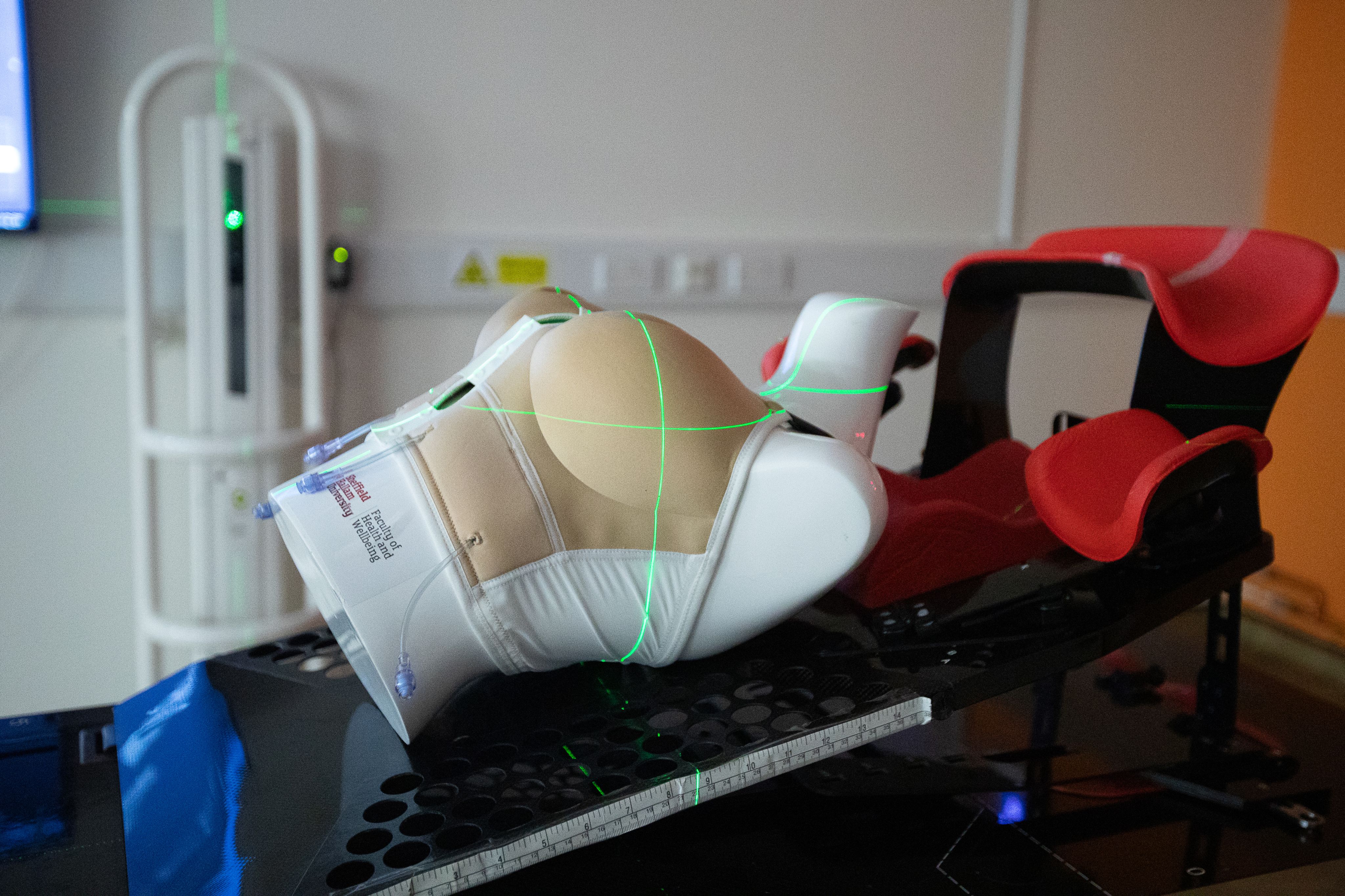
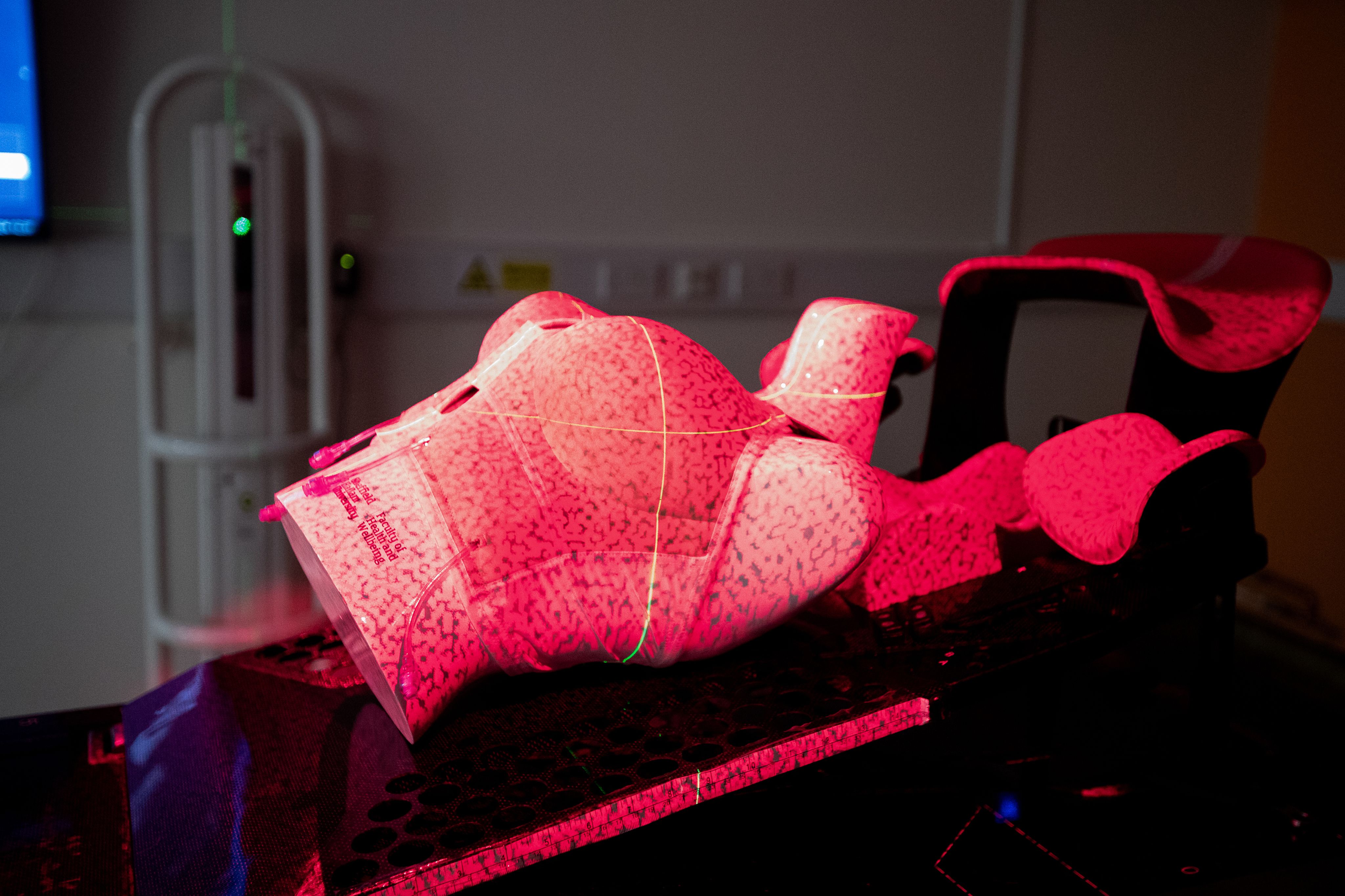
‘A love of learning’
Heidi added that she knows how important mentoring is – when she took on her role as director of the research institute, she wanted to give other people the opportunity to receive the guidance she didn’t get during her post-doctoral period after completing the PhD.
“Especially once I'd gotten my PhD, I found it quite difficult to know which direction to go in and where I should be putting my efforts,” she said.
“I would have really benefited from somebody to support me with that. Mentoring is really valuable. We need people to have that opportunity for a bit of one to one with somebody. Sometimes all it takes is just somebody to listen to you.”
Heidi has been a supporter of the CoR’s mentorship scheme and supported this scheme when it was first proposed while she was chair of the Research Group.
She said: “One measure of the impact of the Health Research Institute mentorship scheme is the fact that people who've been through the scheme have now come back as mentors, and they really want to mentor other people. People that have been on that mentorship scheme have progressed massively in their careers.”
She added that teaching was the best part of her job. Heidi continues to teach, supervising PhD and Masters students, and continues to enjoy getting involved in dissertation projects.
“That’s the best thing for me. I really enjoy reading, trying to understand the data,” she added.
“That love for learning has never stopped. It’s strange, when I did my exams back in 1987 it was so stressful – I told myself I would never do another course ever again. Then, two years into working as a clinical radiographer, I got the hook to learn more.”
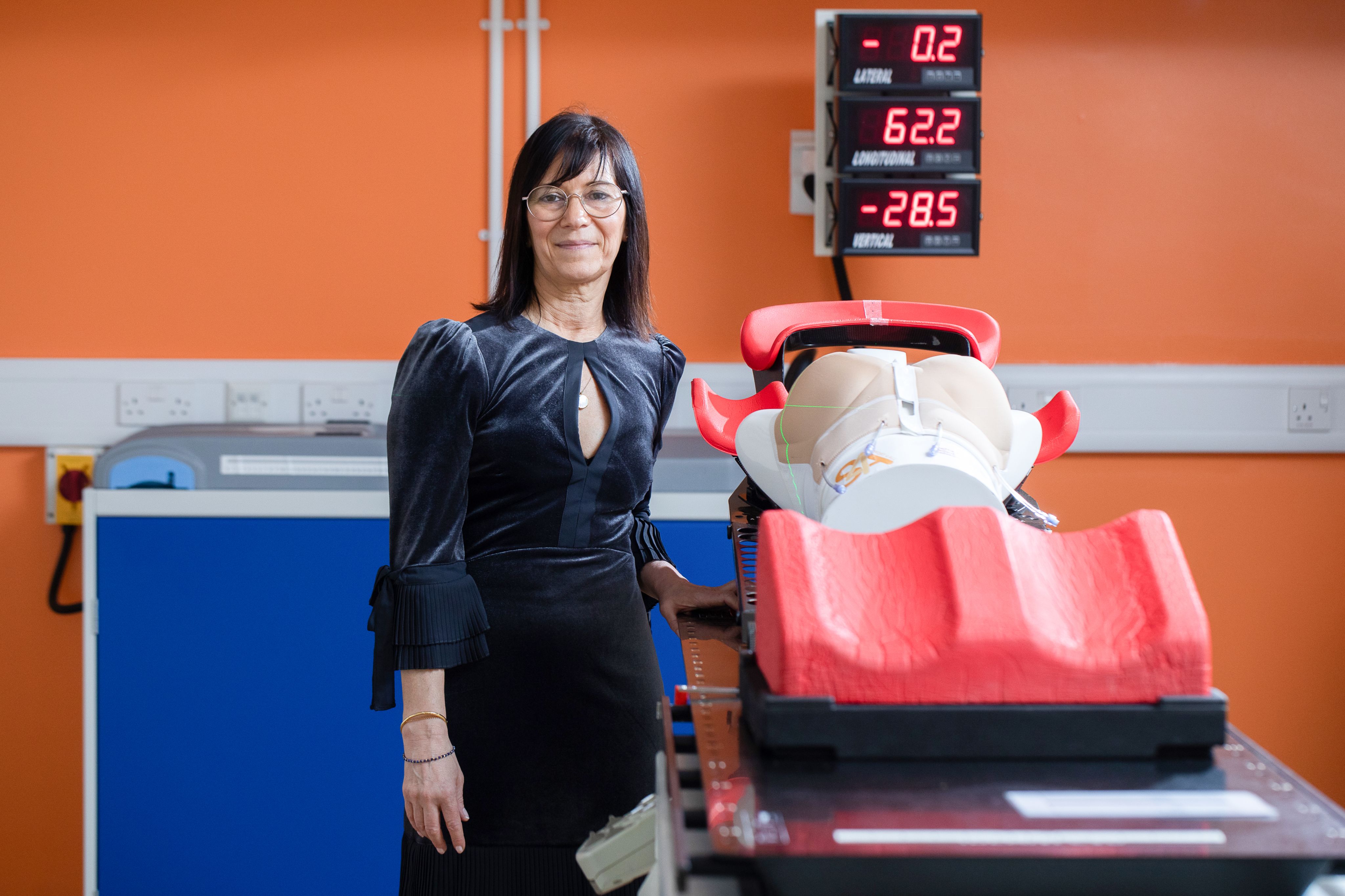
New Year Honours
In recognition of her career-long work, Heidi was awarded a MBE for her services to radiography in the 2024 New Year Honours List.
Her contributions include her work as an educator, including leading a number of inter-professional research method courses.
Moreover, Heidi has been involved with training and mentoring initiatives in her role as director of the Health Research Institute, has developed research and innovation training courses for undergraduates and for early career researchers, and has contributed her own research to radiography throughout her time in the profession.
“I'm a very big advocate of supporting early career researchers to get involved in research and innovation,” Heidi said.
“The work that I've been very lucky to do for the College of Radiographers Research Group and the College of Radiographers Industrial Partnership Research Scheme, as chair of the grant panel, has been extremely rewarding.”
She said: “[The MBE is] hugely important for our profession. When the letter came I was just completely shocked and overwhelmed. I think the thing that was so lovely, that I hold most close to my heart and that really made me really happy, was that somebody somewhere had taken the time to nominate me and I know that that's not an insignificant task.
“It takes quite a bit of time to put that nomination together to submit it, and so I feel incredibly honoured that somebody took the time to do that and thought that my contribution to radiography was worthy of such a nomination.”
Supporting the profession
Heidi told Synergy that she was extremely thankful for the opportunity to point out the hard work her colleagues in the profession had been doing.
“I'm hugely grateful to them for that,” she added.
“As a therapeutic radiographer, we're quite a small profession. Radiography itself is quite a small profession, and therapeutic radiographers are quite unknown. I feel really privileged to be able to fly the flag for radiographers in general, but also our Allied Health Professional colleagues, because often we only ever hear about doctors and nurses in the media.”
“I was so happy to accept the award on behalf of my colleagues who day in, day out, sometimes under challenging circumstances, do their job brilliantly, and care for patients often at what can be one of the darkest times in patients' lives.”
“I've had loads of amazing messages across social media, and people commenting, and also messaging me personally. I feel quite humble really, because especially when you do research, it's a team effort. It's not you alone. I certainly wouldn't be here if it wasn't for my team at Hallam, the radiotherapy and oncology team that I work with, the teaching team and all the researchers that I work with and have worked with over the years.
“I wouldn't be in this position without them. It’s very much a recognition of all their work too. I'm so grateful that I get to work with the most amazing people across disciplines and people who share the values of our research team and who want to make things better for patients.
“The Society of Radiographers and the profession of radiography is such an amazing community of people in terms of supporting each other and also pushing forward. We've got amazing people in the professional officers at the Society, who are there to support and to help direct us as a profession, and we're moving forward at such a pace now, which is brilliant to see.
“Our colleagues are out there doing brilliant work in research and innovation. We've got amazing consultant practitioners, advanced practitioners – there's so many people that are amazing role models for people who are just starting out as undergraduate students to look to.
“We've just got some incredible people at the helm. I feel incredibly privileged to be part of that community and to work with such amazing colleagues across the whole of my career who have helped me get to this point. So a big thank you to all of them, because I wouldn't be here without them.”
Find your passion
When asked what advice she would give to students, Heidi said that she would strongly recommend getting involved in projects and topics that they were passionate about.
“I was passionate about research, and innovation, and wanting to change things, in part because I get irritated by things that I don't understand, or that make me think, ‘why are we doing things that way? Surely, there's a better way’. That fuels me, and I'm passionate about making things better with evidence.
“My recommendation to anybody starting out in the profession is to find the thing you're passionate about. Whether you want to focus on technical delivery or on patient care, find that that’s in your heart, the thing you’re good at, then find a niche where you can do that.”
She added that mentoring was incredibly important to the professional journey.
“It doesn’t have to be somebody who has the same passion or area of interest, it can just be somebody who has been where you are and can give you some helpful advice along the way. We’ve got amazing people in the profession who are skilled at all sorts of things.”
Education and training were also important factors in improving and supporting professional development, Heidi added. This does not have to be at the degree level, however.
Whether a module of learning, or continuing professional development activity, education in all its forms is “hugely beneficial” for the entire profession, she highlighted.
Find out more...
Professor Heidi Probst is a professor of radiotherapy and oncology at Sheffield Hallam University.
She has 14 years of clinical experience working as a therapeutic radiographer in the NHS and 20 years' experience as a researcher and lecturer.
Her main area of research is radiotherapy for patients diagnosed with breast cancer, and she is principle investigator on three breast cancer studies - the SuPPORT 4 All Project, The Respire project, and the Calibrate study
Find out more about Heidi's work here.
Image credit: Andy Brown
Now read...



